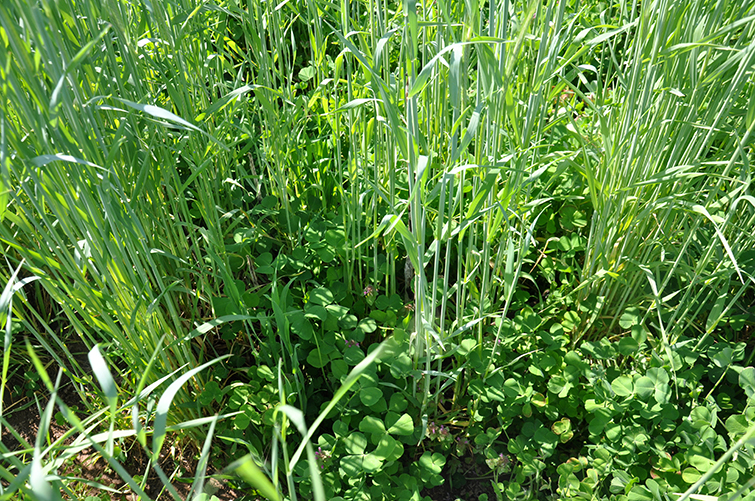UK researchers advancing cover crop knowledge
UK researchers advancing cover crop knowledge

Published on Feb. 6, 2020
University of Kentucky College of Agriculture, Food and Environment researchers Erin Haramoto and Hanna Poffenbarger are part of an international group of scientists working to enhance the effectiveness of cover crop-based conservation tillage systems to create more sustainable agriculture production.
The five-year, $10 million project is funded by the U.S. Department of Agriculture’s Agriculture and Food Research Initiative and led by North Carolina State University. The project aims to show how cover crops increase crop profitability, resilience and sustainability for corn, soybeans and cotton and increase cover crop adoption by farmers.
While not typically harvested for income, farmers use cover crops in their production rotations to protect and regenerate the soil and improve soil, water and pest management. By using both cover crops and reduced tillage, producers increase carbon sequestration in their soil, improve their soil health and allow for a more climate-resilient production of food and fiber.
Haramoto and Poffenbarger, assistant professors in the Department of Plant and Soil Sciences, received more than $425,000 for their portion of the project. They will study how cover crops contribute to nutrient cycling and pest management in Kentucky as part of a coordinated effort with 14 other locations across the U.S.
“We aim to determine how nitrogen inputs to corn should be adjusted following winter cover crops such as cereal rye and crimson clover,” Poffenbarger said. “The coordinated effort of researchers at 15 locations across the country will provide a unique dataset to understand how cover crops function in different environments.”
In the common pest management experiment, also conducted at 15 locations, the UK team is studying how cover crop termination time affects complex pest dynamics in corn, including diseases, pest and beneficial insects, and weeds.
“This information will help producers make more informed decisions on pest management inputs in cover crop systems,” Haramoto said.
In addition to these common experiments, they will also develop a new multi-institution undergraduate course to foster better understanding of regional cover crop use and adaptation. This course will use cutting-edge teaching tools and techniques to provide students with a better understanding of the ways cover crops can contribute to agricultural systems.
The coalition of scientists, known as the Precision Sustainable Agriculture team, have expertise in crop management, systems modeling, social science, technology and human-centered design. They will use the latest technology, including real-time data flow and cloud-based platforms, to measure the benefits of cover crops across different climates, locations and soil types. They will use the results from their experiments to develop decision-making tools for farmers to help them determine which cover crop is best for their area and production system. More information about the group is available online at http://precisionsustainableag.org/.
Crops Entomology Research Sustainability


